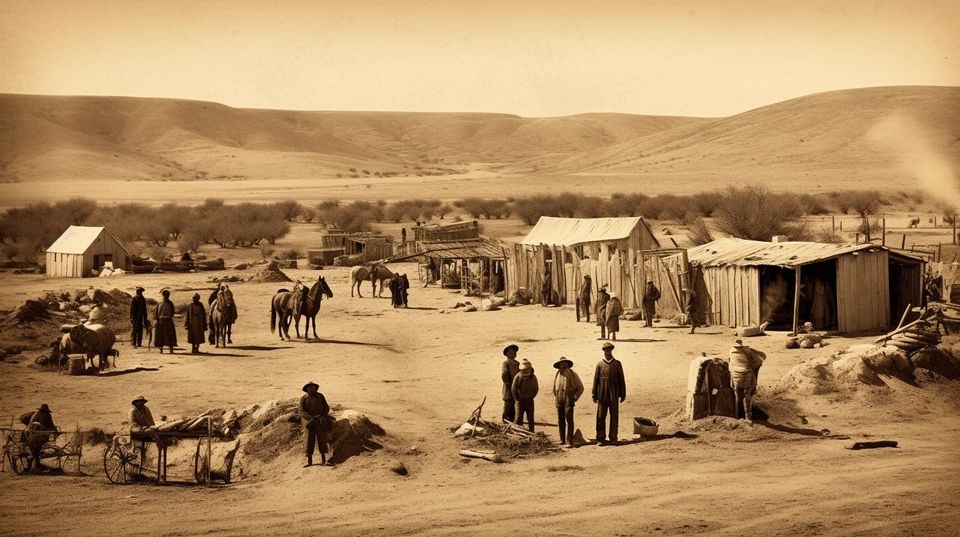Power and the Proviso

To the considerable annoyance of President James K. Polk, in 1846 a freshman Pennsylvania House Democrat named David Wilmot introduced an amendment to the bill authorizing Polk's requested $2 million appropriation for acquiring territory from Mexico. The Wilmot Proviso explicitly barred slavery in said territory.
"What connection slavery had with making peace with Mexico it is difficult to conceive," Polk grumbled to his diary.
Of course, the Wilmot Proviso wasn't about making peace with Mexico but checking the political power of the South. Michael F. Holt, in The Political Crisis of the 1850s, quotes an 1852 letter from Wilmot to Franklin Pierce on this point:
I am jealous of the power of the South. ... The South holds no prerogative under the Constitution, which entitles her to wield forever the Scepter of Power in this Republic, to fix by her own arbitrary edict, the principles & policy of this government, and to build up and tear down at pleasure. ... Yet so dangerous do I believe the spirit and demands of the Slave Power, so insufferable in its arrogance, if I saw the way open to strike an effectual and decisive blow against its domination at this time, I would do so, even at the temporary loss of other principles.
Pierce, of course, turned out not to be as jealous of the South's power as was Wilmot. Holt also cites a letter from William H. Howe, a young Massachusetts Whig, to Roger Sherman Baldwin Jr., a former Yale classmate:
They have trampled on the rights and just claims of the North sufficiently long and have fairly shit upon all our Northern statesmen and are now trying to rub it in and I think now is the time and just the time for the North to take a stand and maintain it till they have brought the South to their proper level.
Laying out other reasons for Northern opposition to slavery in the territories, Holt writes:
Some Northerners, undoubtedly a minority in the section, sincerely viewed black slavery as such an intolerable moral evil that it could not be allowed to expand and thus perpetuate itself. They and others, moreover, honestly believed that preventing slavery's expansion would ensure its destruction. Many more abhorred slavery as an economic system inimcal to the free labor system of the North. If planters settled with their slaves in the territories, Northerers feared, nonslaveholding farmers from the North could not. Free labor and slavery could not coexist. And because many Northerners believed that the continued growth of their own economic system and with it of opportunities for upward economic mobility depended on continued expansion into new lands, they viewed the struggle over the territories as vital.
Jefferson Davis would counter these arguments in an 1850 speech in the U.S. Senate:
What has been the progress of emancipation throughout the whole history of our country? It has been the pressure of free labor upon the less profitable slave labor, until the slaves were transferred to sparser regions, and their number, by such transfer, was reduced to a limit at which, without inconvenience or danger, or serious loss, emancipation of the few who remained might occur. ...
We only defend the domestic institution of slavery, as it exists in the United States; the extension of which into any new territory will not increase the number of the slaves by one single person, but which it is very probable may, in many instances, produce emancipation… It is not, then, for the purpose of emancipation or for the benefit of the slaves that it is sought to restrict it; no sir, quite otherwise.
It seems clear that for both sides the struggle was primarily about sectional power, although even those underlying assumptions seem questionable. Zachary Taylor, a Louisiana slaveholder, turned out to be a huge disappointment to Southerners who had enthusiastically supported his candidacy, and Pierce, in turn, disappointed his fellow Northerners. So even if California had entered the Union as nominally a slave state, but one in which slavery was diffuse rather than concentrated, there was no guarantee its interests and its politicians would be aligned with those of the South.
And for all the Southern indignation about Southerners' "equal rights" to carry their property into the territories, just how many of the Southerners relocating to more arid lands would, in practice, be large slaveholders?
See you next post. If you'd like to get these delivered to your inbox (for free), hit the subscribe button and enter your email address. You may need to check your spam folder for the confirmation email, but I'll never spam you or share your address. You'll just get these posts with the video embedded.
